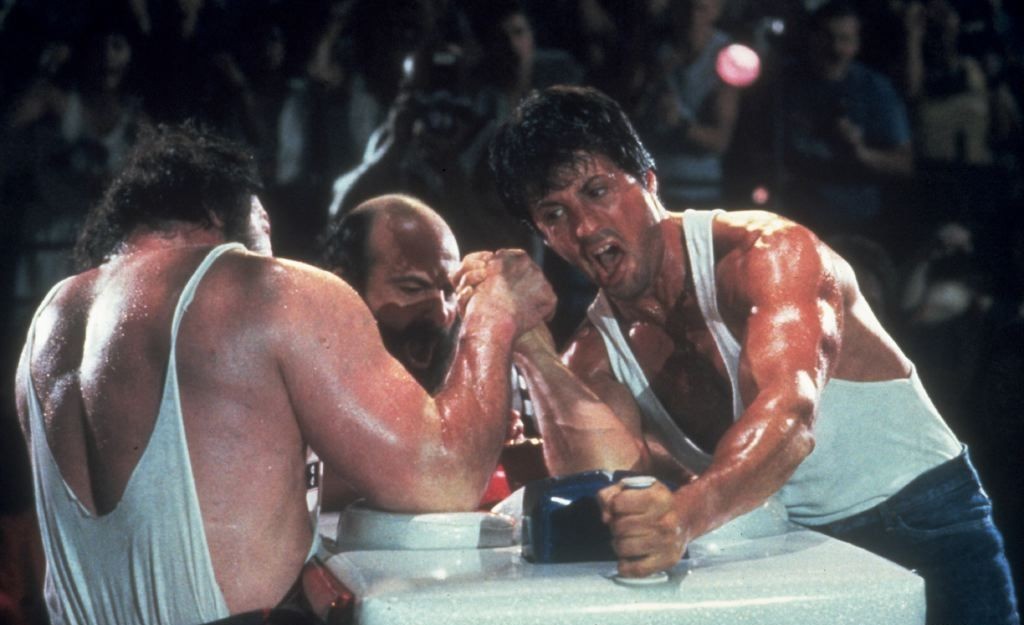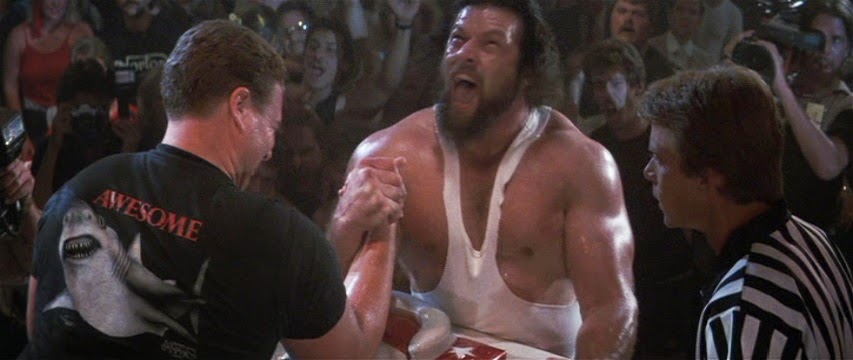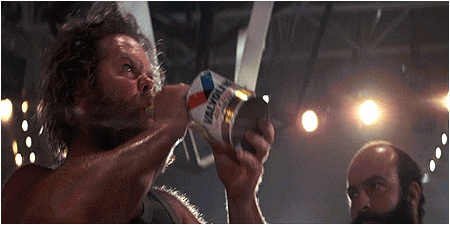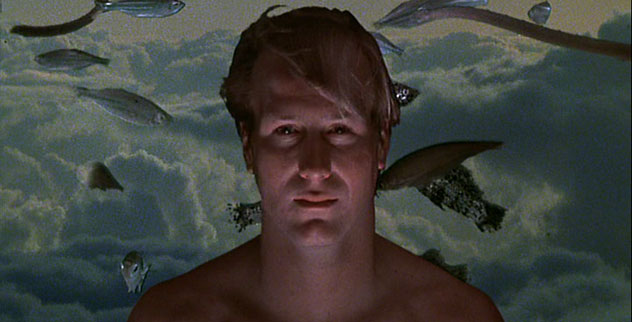In all my mid-'80s, HBO/Cinemax-watching glory, I never managed to catch a viewing of Sylvester Stallone's cheesy arm wrestling drama Over the Top. It looked like a combo action-adventure meets family melodrama...with semi trucks. I was...semi-interested.
Like another mid/late '80s cheeseball macho epic, Road House, I assumed at the time that it was not for me. I was wrong. I viewed Road House's ridiculous glory a few months ago. I had to check out this arm wrestling flick.
Because Over the Top is almost too stupid for words, how about we go with images?
He has pulley weightlifting gear....IN HIS TRUCK.
Stallone in full sideways mouth grunt/yell/scream. You'll get to see it a few times in the film.
You know Stallone's character Lincoln Hawk (not his porn name) means business when he moves his baseball hat backwards. He's ready to fight.
Arm wrestling competition contestants with chest-baring skank tanks and "awesome" shark t-shirts.
"Crazy" greasy bearded wild man wrestler drinking from a can of Valvoline motor oil (coz...reasons?) while Stallone and a hot bear referee look on in....disgust(?)
Bug-eyed, not subtle, loudmouth, main wrestler villain in his (not cool) 'BLASTER' t-shirt.
BLASTER possibly trying to pick up Stallone in a bar. Sylvester is stand-offish, aloof, and not into it.
Kenny Loggins teamed up with Giorgio Moroder (on the edge of his mid-'80s downturn) for the schlocky power ballad 'Meet Me Halfway.' It could not save the melted Velveeta cheese score.
Explain this look.
Action figures for your own fan fiction moments.
Lincoln Hawk's creepy, uptight tween son Mike Hawk is the other main character of the film. The character is supposed to be maybe 12-years-old but was played by a tiny, pre-pubescent 16-year-old actor.
Hey Mike, don't wear pristine white jeans to a grimy arm wrestling meet.
Real talk.
One more sideways howl for ya. Thanks Sly!

















